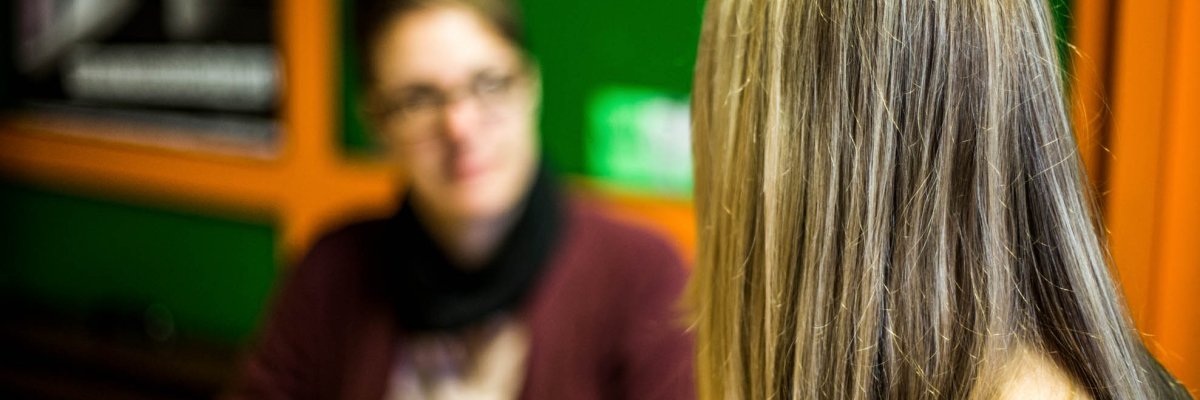Pro career orientation
ProBe: Profile Development & Career Orientation
Theory meets practice: The "Pro Berufsorientierung" network programme, which is unique in Hesse, already offers a two-and-a-half-year vocational orientation programme in seven secondary modern and secondary modern schools in the Waldeck-Frankenberg district at the school level. In addition to their general school education, the young people are accompanied through the programme for two and a half years. For one year, they also visit the workshops and specialist rooms of the Korbach Bad Arolsen vocational schools or the training construction yards of the Waldeck-Frankenberg district craftsmen's association one day a week - and thus gain an insight into a variety of occupational fields:
- Metal, electrical, wood, construction and automotive engineering
- Colour technology/room design
- Gastronomy/Service
- Nutrition/Cooking
- Health
- Economy and administration
- Social services
- Body care
In the practical phase, they deepen the work in the different professional fields, learn what it means to work in a team and which competences are expected in the different fields.
Programme description and modules
The programme enables young people at lower secondary schools from grade seven onwards to receive in-depth career orientation with a high practical component. An important component is the thematic group work at the participating general education schools. The programme is divided into five modules.
Module 1 - Raising awareness of topics and issues related to the world of work, career orientation and the choice of training and occupation
The young people deal with the requirements of the world of work both practically and theoretically. The subsequent practical testing in different occupational fields at the vocational schools is prepared, e.g. by a visit to the vocational schools (presentation days).
Module 2 - Practical vocational orientation
The young people get to know three occupational fields selected by them at the vocational schools and the district crafts association and try out their skills once a week under the guidance of the vocational school teachers and training supervisors.
approx. 6 weeks - occupational field A
approx. 6 weeks - occupational field B
approx. 6 weeks - occupational field C
Module 3 - Practical training
The practical experience gained is now deepened in an occupational field. The young people have the opportunity to consolidate and expand their skills. Career counselling by the employment agency also takes place during this phase. This counsellor compares the pupils' ideas with the requirements of the companies and gives tips for the application process. At the end of the practical career orientation, the pupils present their projects and learned skills to the public and future training companies in the area during an afternoon.
Module 4 - Application training incl. concrete training preparation, support in preparing application documents, preparation for job interviews, contact with companies, concrete preparation for taking up a training positionAfter the practical experience, a (preliminary) career choice decision is now to be made. In the process, the pupils learn to deal intensively with the regional training market and are shown how to specifically look for training positions and prepare for interviews. Job interviews and self-presentation are practised. An important component is the application documents, which are prepared individually in this context. The thematic group work on this complex of topics is supplemented by the individual support and individual assistance of the pupils by the social education workers.
Module 5 - Realisation strategy: individual counselling, reviewing/concretising career choice decisions, selecting training companies, dealing with personal concerns
With this module, the integration approach in education is accompanied and controlled in small steps, taking into account the individual starting situation of the students.Participating schools
Kaulbachschule Bad Arolsen
Social pedagogical support: Corinna Kieselbach
E-mail: kaulbachschule@schulsozialarbeit.wafkb.deKugelsburgschule Volkmarsen
Socio-educational support: Janina Drude
E-mail: kugelsburgschule@schulsozialarbeit.wafkb.deSchool Centre an der Warte Sachenhausen
Social pedagogical support: Tatjana Naderian
E-mail: mps-sachsenhausen@Schulsozialarbeit.wafkb.deOrtenbergschule Frankenberg
Social pedagogical support: Regina Specht-Mohr
E-mail: ortenbergschule@schulsozialarbeit.wafkb.deBattenberg Comprehensive School
Socio-educational support: Sonja Scholl
E-mail: gesamtschule-battenberg@berufsorientierung.wafkb.deCornelia-Funke-Schule Gemünden
Socio-educational support: Andrea Schmidt
E-mail: hans-viessmann-schule@schulsozialarbeit.wafkb.deBurgwaldschule Frankenberg
Social Pedagogical Support Johanna Berendes
E-mail: burgwaldschule@schulsozialarbeit.wafkb.deEnse-Schule Bad Wildungen
Socio-educational support: N. N.
E-mail: ense-schule@schulsozialarbeit.wafkb.deIntegrated Comprehensive School Edertal
Social pedagogical support: Sara Louise Otto
E-mail: gesamtschule-edertal@schulsozialarbeit.wafkb.deMathias-Bauer-Schule Bad Wildungen
Socio-educational support: Carolin Berger
E-mail: mathias-bauer-schule@schulsozialarbeit.wafkb.deGustav-Stresemann-Gymnasium
Socio-educational support: N.N.
gustav-stresemann-gymnasium@schulsozialarbeit.wafkb.de
